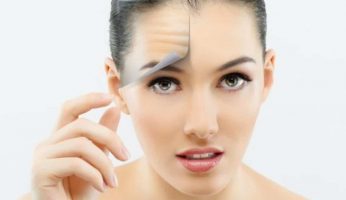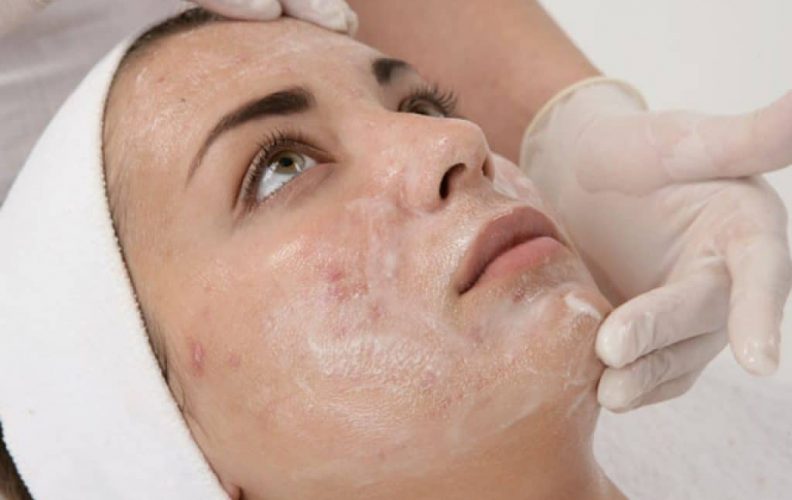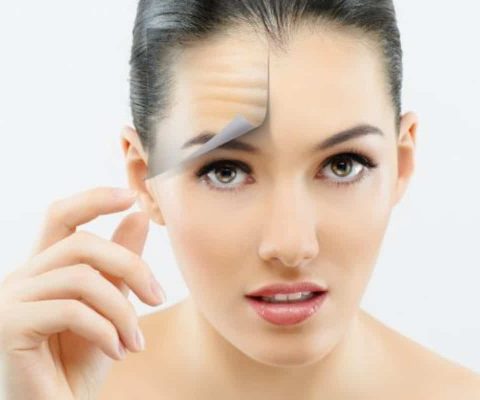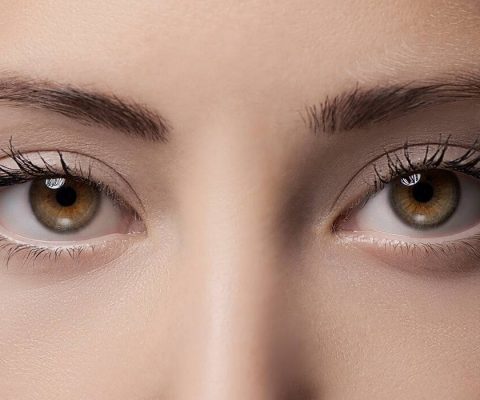Hyaluronic Acid Benefits: What Can It Do for You?
Disclosure: We use affiliate links and may receive a small commission on purchases.
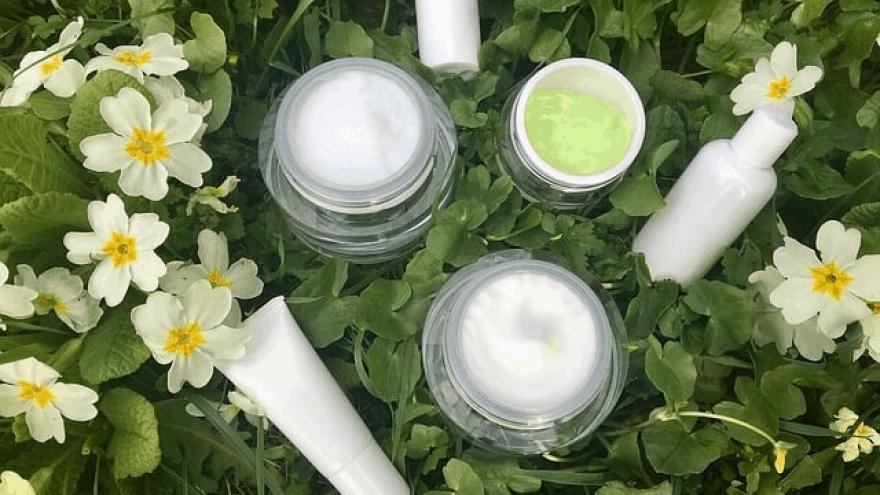 Hyaluronic Acid Benefits: What Can It Do for You?
thefitbay.com
Hyaluronic Acid Benefits: What Can It Do for You?
thefitbay.com
Hyaluronic acid is an awesome supplement since it can be injected into the joints for people with knee osteoarthritis. Not only that but it also has cosmetic and wellness uses, which we’re going to dig into for you. To boot, there are many supplements out there that contain it — a hyaluronic acid supplements review from anyone will tell you all the good they do.
So, what are the benefits of hyaluronic acid, and what is hyaluronic acid used for? The benefits from its various forms are:
- Hyaluronic acid skin benefits — anti-aging, nourishing dry skin, sealing in moisture.
- Wound-healing.
- Lubricates the joints.
- Helps with acid reflux.
- Eye health.
- Bone strength.
- Prevents bladder pain.
Promotes Healthy, Youthful, Rejuvenated Skin
There are two versions of hyaluronic acid found in skin care products:
- Hydrolyzed hyaluronic acid
- Sodium hyaluronate
Hydrolyzed hyaluronic acid is just regular hyaluronic acid in a smaller form. Sodium hyaluronate is the sodium salt that’s in hyaluronic acid.
Hyaluronic acid has a large molecular weight (1), so it has to be broken down as it won’t penetrate the skin like this — this is what happens when it’s hydrolyzed.
Once hydrolyzed, it can draw in water and hold moisture. This held moisture battles dry skin, keeping the skin healthy and moist throughout the day. This is one of the best hyaluronic acid serum benefits.
It’s more common to extract the salts — sodium hyaluronate — in the acid. Its molecular weight is even lower than hydrolyzed hyaluronic acid, so it can penetrate even deeper into the skin. The results are:
- Plumping.
- Rejuvenation.
- Reduction in the look of fine lines and wrinkles.
Topical Skincare Use
Hyaluronic acid for topical use on the skin is available as:
- Serums.
- Creams.
- Moisturizers.
You can use one or a combination of all three. How much you use is product-dependent, so read the leaflets and consider what you use for your daily skin routine already.
Ask your dermatologist about the best product to use. There might be one available specifically for your desires or issues.
Supplements for Skincare
Taking daily supplements will help from the inside out. There are various excellent products on the market, with ingredients such as:
- Microcrystalline cellulose.
- Magnesium stearate.
- Dicalcium phosphate.
- Glycerin coating.
These ingredients may vary depending on the brand of supplement, but the main ingredient is, of course, hyaluronic acid, which is natural.
Given that hyaluronic acid is naturally present in your skin to retain moisture, supplements only help it along. The hyaluronic skin benefits are substantial — it should be a key ingredient in your skincare routine. (2)
Speeds Up Wound Healing
When we get a surface wound, we tend to take topical and oral pain killers and clean the wound every day, hoping that it speeds the healing process. Hyaluronic acid, also known as “HA,” can really help in these situations, though.
Hyaluronic Acid for Basic Skin Wounds
Hyaluronic acid naturally present in the skin helps with this; it’s present in all stages of the wound’s healing. (3) A major function of HA here is by encouraging the body to build more blood vessels in the damaged area. (4) This is the proliferation stage of wound healing, rebuilding the skin’s tissues with the new vessels.
This is a natural healing solution that will happen without treatment. Applying a topical treatment or taking hyaluronic acid supplements can help it along.
Instead of using basic pain relief, disinfectants and healing creams, something with hyaluronic acid will do all three at once. Applying it to a healing wound shrinks the wound, speeds up healing and restores the barriers in the skin. (5)
Hyaluronic Acid for Other Wound Types
Hyaluronic acid has talent beyond just healing your scratches and grazes. It’s been seen to heal more complex wounds, like leg and mouth ulcers. (6, 7)
While we’re on the subject of the mouth, hyaluronic acid helps out with more than just oral ulcers. It helps with healing gum disease and helps along with the recovery after surgical dental procedures. (8)
Lastly, hyaluronic acid-based dressings are often used to treat burns — a hideously nasty type of wound. (9)
Hyaluronic Acid’s Antibacterial Association
When applied directly to open wounds, hyaluronic acid has antibacterial properties. (10). You shouldn’t just throw any old hyaluronic acid product into an open wound, though. You don’t want non-specific chemicals invading it.
Instead, look for a hyaluronic acid-based product marketed to help with wound healing. Talk to a pharmacist or a doctor if your wound is serious. Your pharmacist should be informed about the products they’re selling and be able to lead you in the right direction.
Relieves Joint Pain

Hyaluronic acid can relieve pain in more joints than the knees. Taking hyaluronic acid supplements boosts your levels everywhere, including around your joints, helping your natural synovial fluid. (11)
Hyaluronic oral supplements are great for people living with osteoarthritis. If you think this would help you, seek medical advice and then go for it. It could increase your range of motion and improve your quality of life.
Some research has shown that pairing hyaluronic injections with supplements helps extend the time between injections. (12) This is desirable, giving your injection site more time to heal between treatments. Hyaluronic acid supplements will help with that healing, too.
Soothes Acid Reflux Symptoms
New studies suggest hyaluronic acid may soothe acid reflux symptoms.
During acid reflux, the contents of the stomach are regurgitated into the throat. This damages the lining of the esophagus, causing the pain. Hyaluronic acid may soothe the discomfort and heal the esophageal lining faster. Studies with both test-tubes and humans have shown this. (13)
One study shows that taking hyaluronic acid, chondroitin sulfate and basic reflux medication decreased symptoms faster than taking a basic medication alone. (14)
Researchers discovered via a second study that the same supplement combination works five times better than a placebo. (15)
Improves Eye Health
Hyaluronic acid is already present in the eyes, and it’s excellent at retaining moisture. There are two ways hyaluronic acid is used in eye treatments — drops and injections, although you should only go to a professional for the latter.
More specifically, eye drops that contain a minimal amount of hyaluronic acid — a maximum of 0.4 percent — have been shown to improve eye health, especially in keratoconjunctivitis sicca. (16)
Just beware in advance that you should never put hyaluronic acid serum, or any other non-eye-drop substance, in your eye. Skin hyaluronic acid is very different from hyaluronic acid for eyes. If you must, flush your eye with water occasionally until you have access to eye drops.
Hyaluronic Acid for Dry Eye
Eye drops made with hyaluronic acid have been shown to relieve dry eye symptoms and improve overall eye health. (17)
People suffer from dry eye when they have reduced tear production or their tears evaporate too quickly. This happens more as people age. To combat this, eye drops with the acid in them naturally moisten the eye, so the eye will stay hydrated like it would with normal tear production.
Contact lenses containing hyaluronic acid are also being developed to treat dry eye. These lenses will slowly release hyaluronic acid into the eye, giving you all-day relief from dry eye symptoms. (18)
Further testing was done on these contacts in 2015. (19) Unfortunately, they don’t seem to have been released to the public just yet.
Hyaluronic Acid for Surgical Use
Another use is for hydrating the eyes during eye surgery, in which it’s usually injected during the procedure. (20) This is needed as you don’t blink during eye surgery. It may also be used in drop form after surgery to relieve your discomfort.
Aids Bone Strength
New research on animals is investigating the effects of hyaluronic acid supplements on bone health.
It’s been found that hyaluronic acid helps slow bone loss in rats with osteopenia. (21) Osteopenia is the early stage of osteoporosis — the condition hyaluronic acid is often used to treat.
The studies, so far, are promising. This hasn’t been tested on humans yet.
Helps Relieve Bladder Pain
Interstitial cystitis or painful bladder syndrome (PBS) impacts up to 6 percent of women and some men. (22)
A layer of glycosaminoglycan covers the bladder as a protective barrier. Bladder trauma, overstretching and many other things can cause the loss of this layer. This loss lowers the resistance of the bladder wall, leading to Interstitial cystitis (IC). It’s also known as BPS — bladder pain syndrome.
The condition causes tenderness, painful spasms and frequent urination. The urge to urinate often doesn’t go away, even right after emptying the bladder. (23) This urge is strong and can lead to urge incontinence.
Hyaluronic acid treatments help replenish the damaged protective lining of the bladder and bladder tissue. (24) This treatment is injected directly into the bladder through a catheter or intravesical treatment. This makes the bladder less sensitive, stronger and less prone to the painful spasms.
Hyaluronic acid has also been found to help relieve pain and ease frequent urination. (25) It’s a highly effective treatment.
Natural Ingredient in Dermal Fillers
Hyaluronic acid is often used in dermal fillers. (26) These are the safest fillers since we know hyaluronic acid is already compatible with the body. Additionally, the body won’t reject hyaluronic acid fillers, like it might with silicone and other substances.
Though many of those other substances are used to add volume or freeze muscles, hyaluronic acid is different. Hyaluronic acid fillers are used to reduce the appearance of fine lines and wrinkles.
HA is also used in lip fillers, for either anti-aging lip rejuvenation or to plump the lips on a purely cosmetic level. Another mainly cosmetic use of it is filling out craters caused by acne scars. Topical methods may also reduce the appearance of these scars.
Clinics that provide dermal fillers even use hyaluronic acid fillers to even out bumps in the nose. This use may not be expected by most, as most nose-related procedures are done surgically.
Hyaluronic acid is used in plenty of unexpected ways. Another less publicized use for it in fillers is to replenish the cushioning in the heels where it’s been reduced. This alleviates pain when walking by protecting the bones.
Other, Lesser-Known Benefits
The public, as opposed to researchers, is keen to point out other benefits. Some of these are coincidental benefits, not health-related ones, but are just as wonderful.
Can Be Used With Makeup
Some people like to use hyaluronic acid serums as a base for their makeup, instead of primer. (27) Doing so will help lock moisture in under the makeup, protecting your skin from the makeup’s chemicals.
Instead of waiting around on your moisturizers to dry, you can apply makeup right after your skincare routine. This will get your day off to a slightly faster start.
Versatile
This isn’t a benefit as outright as the others, but a product being versatile is beneficial. As it can be topical, injectable or taken orally, almost nobody is excluded from being able to use it.
For those who fear injections, they can take supplements for their pain. For those who are nervous about downing pills, they can use hyaluronic-based skin products instead.
Even on the skin, it’s super versatile since it can moisturize, heal and is anti-aging. For someone who needs all three, they only need to buy one product. This works out to be cheaper, takes up less space and is faster to use every day.
Compatible With Other Products
Hyaluronic acid, as an ingredient in itself, doesn’t clash with other skin or pain-relief products. This should come as a relief if you layer different products into your skin care or beauty routine.
You should have no problem layering products with hyaluronic acid; however, other ingredients in your products may clash. Be sure to check the labels carefully.
It can even be used with products that dry out your skin, such as acne treatments containing benzoyl peroxide. (28) Actually, with the way it seals in moisture, it’s advisable to use it with those types of products.
And while it naturally seals in moisture, you won’t look like your skin is covered in water. You won’t look like water is trapped under your skin, either — it still manages to plump up the skin with a natural, healthy glow.
Molecular Options
There are products with large, medium and small-molecular concentrations of hyaluronic acid. This gives you a wide range to choose from and options for every skin type.
For example, after micro-needling to replenish collagen lost from your skin, your skin is left vulnerable. Large-molecular hyaluronic acid will sit on the surface and help heal this. Smaller-molecular concentrations will enter the pores and heal from within, too.
Why Is Hyaluronic Acid so Important?
As a naturally occurring substance, it’s vital to the health of various body parts. Without enough hyaluronic fluid, your skin and eyes dry out. Furthermore, the levels of hyaluronic acid in the body decrease as we get older. If we don’t combat that, issues start to crop up.
The bones in your joints will rub together, causing excruciatingly painful friction. This is actually the whole premise of arthritis. Your skin and eyes can also become drier and irritated as levels decrease, so discomfort isn’t confined to your joints.
What Is Hyaluronic Acid Good For?
It’s like one of those people with the ability to do everything; consider it a wonder-substance, whose benefits are more than just benefits — they’re vital to your body.
Hyaluronic is good for your skin, joints, eyes and your wounds that need a helping healing hand. It helps keep you looking young and moving freely well into your older years.
The Bottom Line
When thinking about what the benefits of hyaluronic acid are, you can’t just nail it down to one or two. They’re numerous, with the main ones relating to improving overall skin, bone and eye health. It’s incredible for almost every part of your body, and it’s safe, too.
If you feel you want to start using hyaluronic acid but aren’t sure if it’s for you, consult a professional. Dermatologists and general practitioners will be happy to guide you through whatever you need to ask, no matter your reason.


